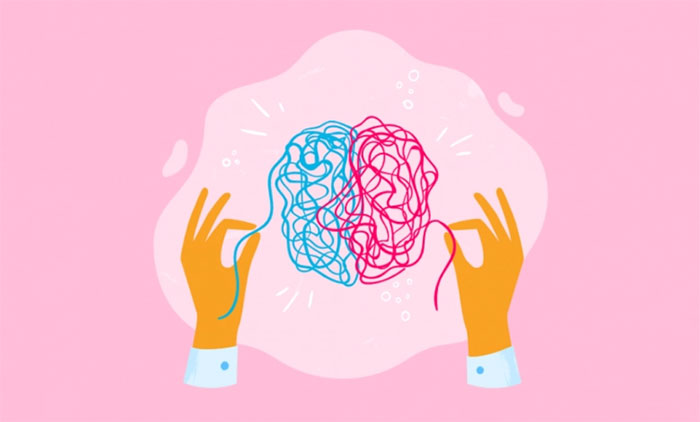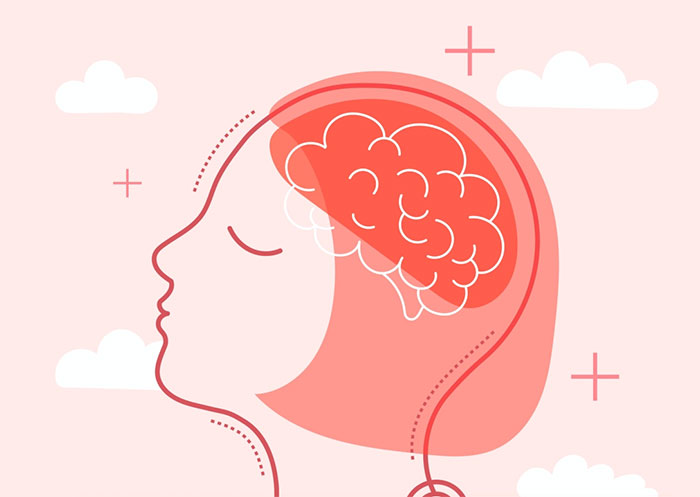Did you know that the brain only takes 4 minutes to feel love?
The human mind is a mystery that psychologists continue to explore tirelessly. Here are 19 random psychological facts about human behavior that you may not be aware of. Some may spark debate, while others will likely receive nods of agreement from most people.
1. Decisions made by a large group are often worse and more susceptible to crowd psychology than those made by just a few individuals.
2. A simple message like “good morning” or “good night” can trigger chemicals that create feelings of pleasure in the brain. So, if you want to make someone feel comfortable, send them a message at the beginning or end of the day.
3. People who hold significant social power tend to lack empathy. This is why your boss often seems indifferent; they may just be struggling to empathize with others.
4. Falling in love is wonderful and one of the most cherished emotions that humans pursue. Even more impressively, it only takes 4 minutes for your brain to start feeling love, as that is the time it takes for the chemicals in your body to take effect.
5. Scientifically speaking, happiness is a chemical. This is why people who are often sad tend to enjoy eating chocolate. Chocolate produces a hormone called oxytocin in the brain, which makes you feel happy.

When faced with rejection in any situation, your brain will create a physical response.
6. Holding hands with someone special has positive effects on your brain. It helps reduce stress and can actually make you feel less physical pain.
7. When you experience rejection, whether in work or love, your brain will trigger a physical response. You may feel ill, dizzy, or have a headache for a period of time.
8. If those around you disapprove of something you’ve done or said, you tend to doubt your own actions. You might feel that what you did or the opinions you expressed could be wrong.
9. If you’re planning to achieve a personal goal, keep it to yourself. Studies show that telling others about your intentions significantly reduces your motivation to achieve that goal.
10. The feeling of being ignored creates mental and brain responses similar to physical trauma.
11. If you find yourself overthinking and want to stop to go to sleep, try writing down your thoughts. Getting your thoughts out can provide relief and help your mind feel more at ease at night.
12. People who travel frequently have better mental and emotional health than those who do not travel often. This also helps reduce stress and can even improve physical health in some aspects.
13. If you want to enjoy food, eat food prepared by someone else. Studies show that you tend to prefer food cooked by others over your own cooking.

You may not know, but laughing is a subconscious action.
14. Laughing is a subconscious action, meaning you cannot force yourself to laugh. Additionally, other animals, including mice, can laugh too.
15. When you need to master a skill or develop a habit, repetition is your best option. Repeating an action will develop neural connections in the brain, making it easier to perform next time.
16. We often love “old things.” Studies show that songs you listened to as a child can leave a lasting imprint on your mind and memory, possibly because you associate them with enjoyable times.
17. The key to forming long-lasting habits is simply to start doing them. Over time, they begin to embed themselves in your psyche, and your day feels incomplete without them. A habit typically takes about 66 days to become ingrained in your brain.
18. You can pretend that you are making progress. This isn’t necessarily a bad thing. The “illusion of progress” can motivate you to actually improve in reality.
19. Your brain is wired to what is known as a negativity bias. This means you tend to remember bad things more than good ones. Additionally, negative memories have a stronger chemical impact on your brain.


















































